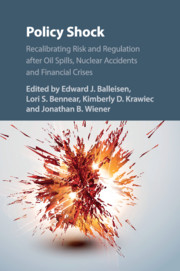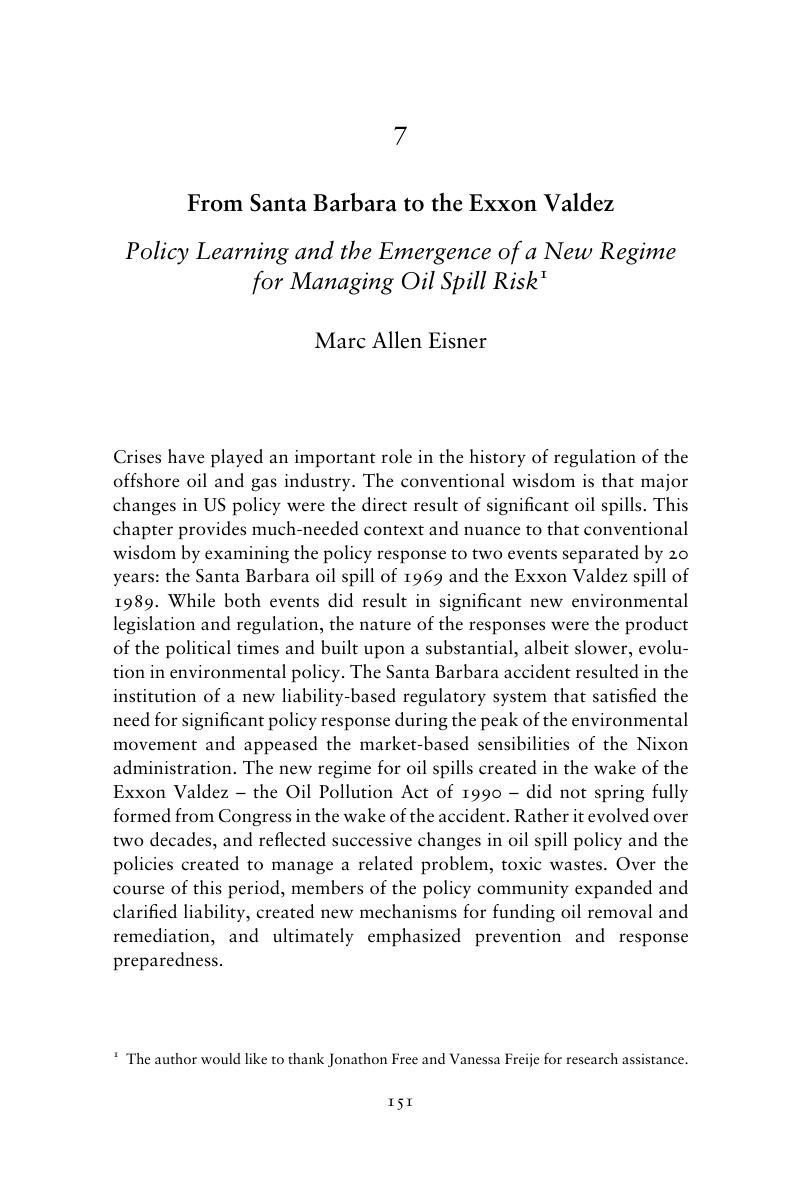 Policy Shock
Policy Shock Book contents
- Policy Shock
- Policy Shock
- Copyright page
- Contents
- Figures
- Tables
- Boxes
- Contributors
- Acknowledgments
- 1 Introduction
- Part I The Conceptual Terrain of Crises and Risk Perceptions
- Part II Case Studies on Offshore Oil Spills
- 7 From Santa Barbara to the Exxon Valdez
- 8 The Nordic Model of Offshore Oil Regulation
- 9 Reform in Real Time
- Part III Case Studies on Nuclear Accidents
- Part IV Case Studies of Financial Crises
- Part V Conclusions
- Index
- References
7 - From Santa Barbara to the Exxon Valdez
Policy Learning and the Emergence of a New Regime for Managing Oil Spill Risk1
from Part II - Case Studies on Offshore Oil Spills
Published online by Cambridge University Press: 24 October 2017
- Policy Shock
- Policy Shock
- Copyright page
- Contents
- Figures
- Tables
- Boxes
- Contributors
- Acknowledgments
- 1 Introduction
- Part I The Conceptual Terrain of Crises and Risk Perceptions
- Part II Case Studies on Offshore Oil Spills
- 7 From Santa Barbara to the Exxon Valdez
- 8 The Nordic Model of Offshore Oil Regulation
- 9 Reform in Real Time
- Part III Case Studies on Nuclear Accidents
- Part IV Case Studies of Financial Crises
- Part V Conclusions
- Index
- References
Summary

- Type
- Chapter
- Information
- Policy ShockRecalibrating Risk and Regulation after Oil Spills, Nuclear Accidents and Financial Crises, pp. 149 - 150Publisher: Cambridge University PressPrint publication year: 2017
